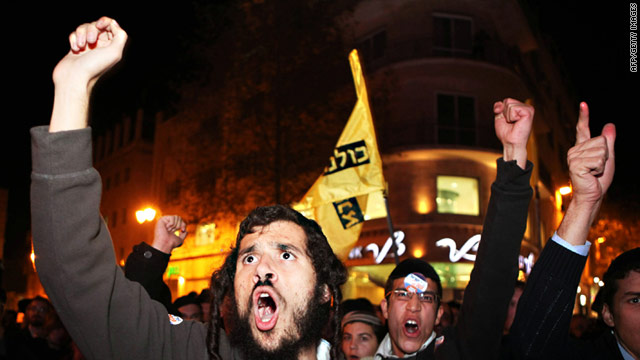When I first found out about the Rabbinical letter banning the sale or rental of property to Arabs, I noticed that my old friend and colleague, Nachman Ben – Yehuda, was quoted condemning it in the Toronto Globe and Mail. I then wrote to him asking for more extended reflections for DC. I received this post from him over the holiday weekend. He took his time, he explains, hoping for consequential official response. He offers his sober deliberate considerations. -Jeff

There are times and places where people like to stick together with their own flock, in defined, sometimes confined, geographical locations. In these locations, they live their own life style, with their own dress codes and eat their own foods. The Amish in Pennsylvania and the Jewish ultra-orthodox in Mea Shearim in Jerusalem are two examples. People outside of these communities and non-members may find it difficult to move and live in such social habitats. Moreover, in the case of ultra-orthodox communities, strangers who live in their neighborhoods and practice a non-religious life style may find themselves facing aggression and violence. I am writing about this to contrast it with the call of some rabbis in Israel not to rent apartments to Arabs in Israeli cities.
Israeli Arabs are just that – citizens with full and equal legal rights, and Israeli cities are not confined communities with a uniform worldview and way of life. Israeli cities, like most other cities of the world, are centers of diversity, including the religious and the secular, Jews, Christians and Muslims, old and young, Sephardi and Ashkenazi, etc. These cities are open. Renting an apartment is basically an economic issue. Making and publicizing a general call not to rent apartments to Arabs (or to any other culturally defined group) is quite simply racism.
The rabbinical pamphlet received very critical comments from some Israeli politicians and others, but this did not prevent activists from the Israeli right and religious right to stage a large demonstration on Thursday, December 23, 2010 in Jerusalem where public support was openly given to this pamphlet.
What can, or should, be done? I think two roads are open. First, the police could reasonably open investigations aiming to bring the pamphlet writers and their supporters up on charges of instigation or other relevant violations of the law. This is a route that will probably last for a very long time (investigation, charge, court, appeal). Those sticking to the idea of not renting to Arabs would probably invoke issues of freedom of speech and of Jewish identity (right wing religious “identity” to be sure). And, because tens, maybe hundreds would be investigated and charged, this is probably not an effective way. On the other hand, the public arena can and should be used. Many of these rabbis are paid with the taxpayers’ money and as such represent the state of Israel in at least some religious and moral issues. The state should demand that they retract their statement within a very short period of time, or else risk their employment. Moreover, the state should make it very clear, officially and unofficially, that such statements are unacceptable.
I have waited, deliberately, to respond to this issue, waiting to find out what would happen. Unfortunately, nothing has. In other words, those Israelis spreading hatred, intolerance and racist views against about 20% of the citizens of Israel may have learned that that they can do it and get away with it.
It is inconceivable that such a pamphlet or public demonstration would have taken place in, say, the 1960s. To my mind, this pamphlet and demonstration is a reflection of the increasing influence of the politics of hatred that is pervading this region. For many years, the common ideal here, if not the practice, was of peace, co-existence and togetherness between Jews and Arabs, we now hear more and more about separation and living side by side, with each side barricaded. The movement within Israel to the political right, and to the religious right, is the ground upon which such pamphlets of hatred, fear and racism have developed.
And it is difficult to change these people’s behavior. It is induced by two very powerful motivators: fear and hatred. The level of fear and hatred has not been counterbalanced by politicians who have real peace and mutual co-existence in their hearts and do their best to create or sustain the conditions, ambiance and situations where Jews and Arabs can live here peacefully together. The social and cultural change reflected in a pamphlet like this is a direct result of years of mistrust, hostility, terror, propaganda, and first and foremost a continued failure (some of it probably intentional) of regional politicians to exercise their primary responsibility to their people, to negotiate a peace or some political settlement to the conflict, to the benefit and well being of both Jews and Arabs.
Worse yet, as the top to bottom approach is not working, attempts to better the situation in daily life, a politics of small things as Jeff puts it, suffers a serious blow with such hostile steps as calling for, and actually not renting apartments to Arabs, and “explaining” why such a call is “justified.” Fear and hatred wins at the local level as it is winning at the summit.

Leave a Reply